

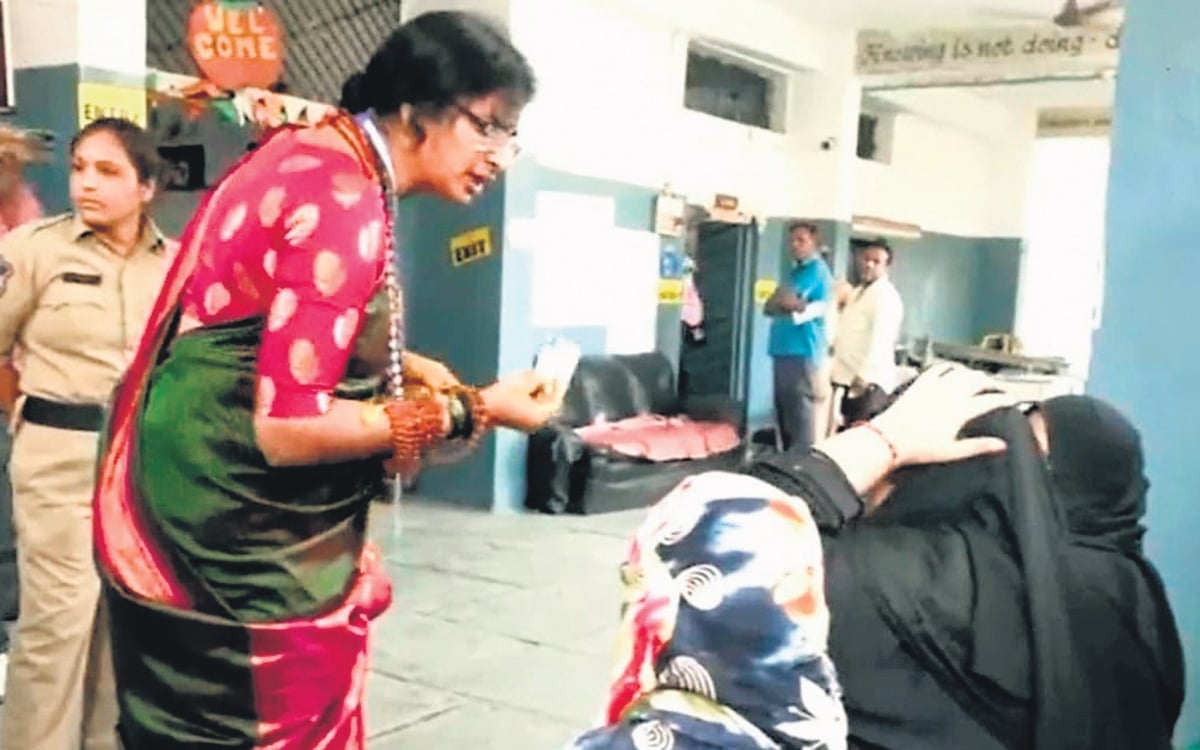
A heated debate has arisen between the Samajwadi Party and the BJP over the issue of voter identity verification for Muslim women wearing burqas, hijabs, niqabs, and ghunghats in the upcoming UP by-election. The Samajwadi Party has approached the Election Commission demanding that Muslim women should not have to remove their burqas for checks, while the BJP argues that every voter must be identified. The Election Commission has confirmed that only the polling officer is authorised to verify voter ID cards, and police or security personnel are not permitted to check ID cards or request a woman to remove her burqa. As polling continues, the outcome of this controversy remains to be seen.
Voter ID Verification for Muslim Women in Burqas: A Contentious Issue in the UP By-election
The upcoming Uttar Pradesh (UP) by-election has sparked a heated debate over the issue of voter identity verification for Muslim women wearing burqas, hijabs, niqabs, and ghunghats. This controversy has its roots in past incidents and electoral practices in the state.
Background
The Election Commission (EC) of India has been grappling with ensuring fair and transparent elections while respecting the cultural and religious practices of voters. In 2013, the Supreme Court ruled that all voters must show their faces for identity verification at polling booths. However, the court also allowed reasonable accommodations for women to maintain their modesty.
In the lead-up to the UP by-election, the Samajwadi Party (SP) raised concerns that Muslim women wearing burqas would be subject to harassment and intimidation if required to remove their veils for verification. The SP demanded that Muslim women should be exempt from removing their burqas during checks.
BJP's Response and EC's Decision
The Bharatiya Janata Party (BJP) opposed the SP's proposal, arguing that all voters must be identified to prevent voter fraud. The BJP claimed that the use of burqas and other face coverings could facilitate impersonation and illegal voting.
The EC responded by confirming that only polling officers are authorized to verify voter ID cards. Police or security personnel are not permitted to check ID cards or request a woman to remove her burqa. The EC also stated that reasonable accommodations would be made for women who wish to maintain their modesty during verification.
Controversy Continues
Despite the EC's decision, the controversy continues. The SP has accused the BJP of using the issue to target Muslim voters and suppress their participation in the election. The BJP has maintained that its position is based on the need for electoral integrity.
Top 5 FAQs and Answers
Q: Who is authorized to verify voter ID cards? A: Only polling officers are authorized to verify voter ID cards.
Q: Are Muslim women required to remove their burqas during verification? A: No, the EC has stated that Muslim women are not required to remove their burqas for verification.
Q: What accommodations are made for Muslim women during verification? A: Polling officers may use mirrors or other methods to verify the faces of Muslim women without requiring them to remove their burqas.
Q: What is the BJP's objection to the SP's proposal? A: The BJP fears that the exemption from burqa removal could facilitate impersonation and illegal voting.
Q: What is the historical context of this controversy? A: The issue of voter ID verification for Muslim women has been a subject of debate in India for several years, with previous incidents of harassment and intimidation reported.
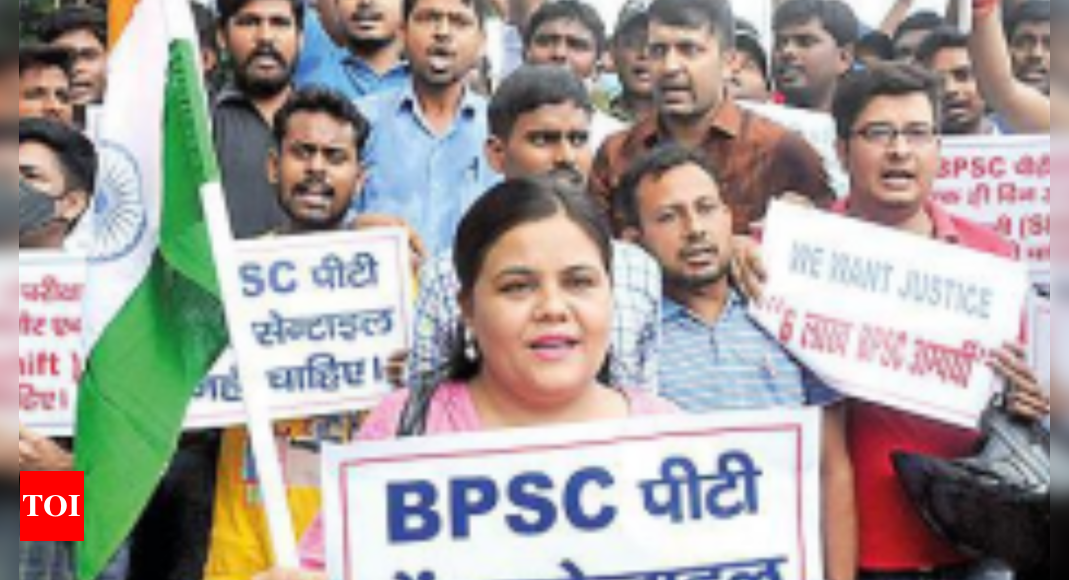
Aspirants of the Bihar Public Service Commission (BPSC) have been protesting for eight days now, demanding a re-examination of the 70th BPSC exam. Independent MP Pappu Yadav has joined the protest and appealed to opposition MPs and MLAs to show their support. YouTuber and educator Faisal Khan, known as Khan Sir, has also joined the protest and urged the BPSC to consider the plight of the students. The BPSC aspirants have previously met Bihar BJP President Dilip Jaiswal and have also protested against changes in the exam pattern and the normalisation process.
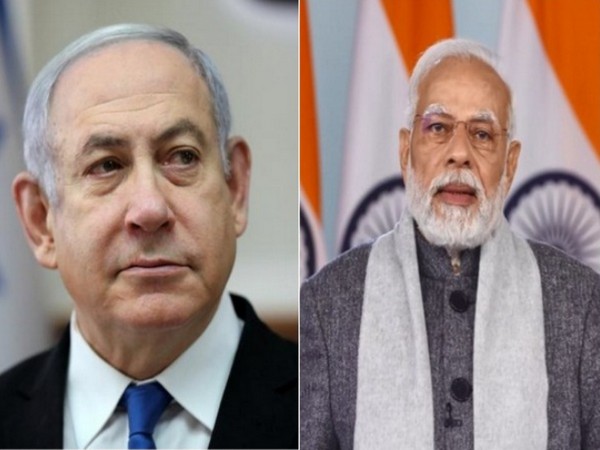
Indian Prime Minister Narendra Modi and President Droupadi Murmu wished Israeli Prime Minister Benjamin Netanyahu and the global Jewish community a happy Hanukkah, a festival that celebrates hope and freedom. In his message posted on X in English and Hebrew, PM Modi expressed his hope that the radiance of Hanukkah would bring peace, strength, and hope to everyone's lives. President Murmu also extended her warmest greetings to Israel President Isaac Herzog on this auspicious occasion.
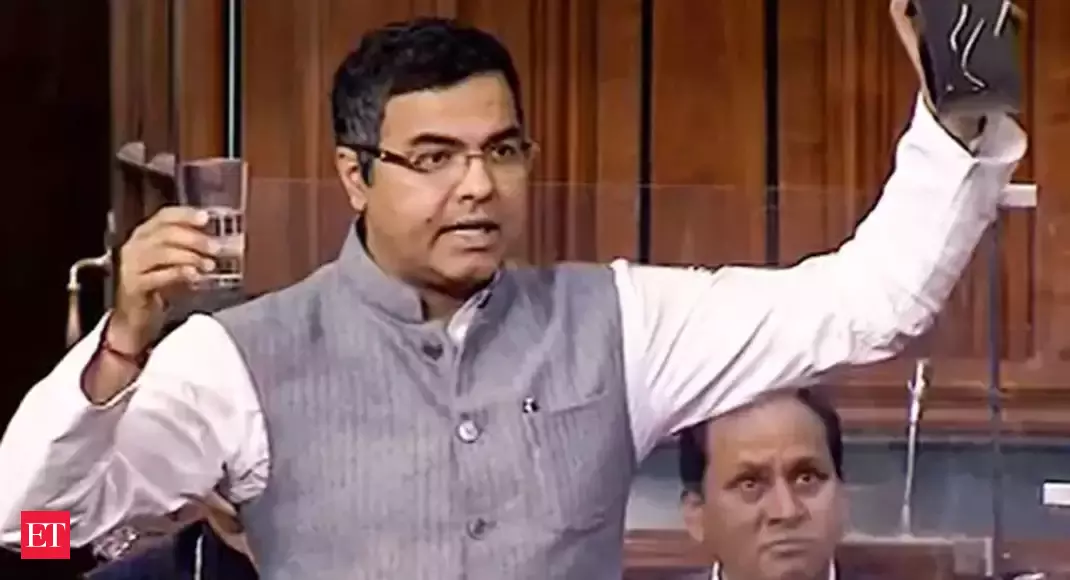
Delhi CM Arvind Kejriwal has accused the BJP of planning to declare Parvesh Verma as its chief ministerial face for the upcoming Delhi Assembly Elections. This comes amid a heated political battle between AAP and BJP, with Kejriwal claiming that the BJP is upset with the successful schemes launched by his party and is resorting to distributing money to sway voters. The authenticity of these claims has been debated, with Kejriwal challenging Delhi MP Bansuri Swaraj to resign if these accusations are found to be false.

Uttarakhand Chief Minister Pushkar Singh Dhami visited Madhya Pradesh to extend his greetings to CM Mohan Yadav on the completion of one year in office. Dhami, along with Yadav, inaugurated the renovated Lakha Banjara Lake and laid the foundation stone for various public welfare projects in the Bundelkhand region. Dhami praised the progress of the region under Yadav's leadership and also mentioned the upcoming visit of PM Narendra Modi to lay the foundation of the Ken-Betwa river interlinking project.

Government leaders from across the country came together in Delhi at a special ceremony to pay their respects to former Prime Minister Atal Bihari Vajpayee on his 100th birth anniversary. CM Chandrababu Naidu praised Vajpayee's leadership and his significant contributions to India's development, stating that his vision and ideas will always be remembered. Vajpayee, who passed away in 2018, was known for his leadership and important role in shaping India's future.
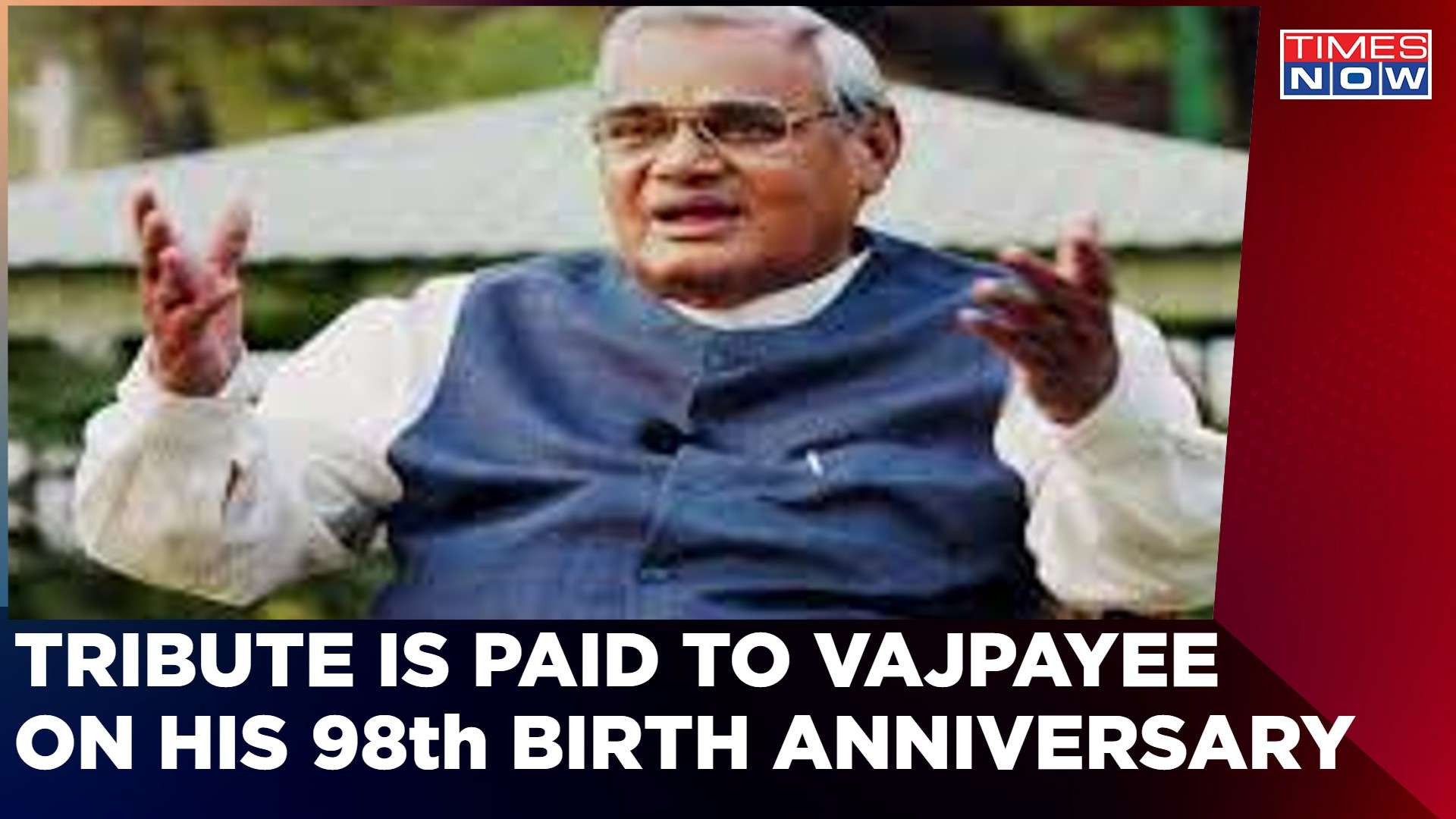
On the 100th birth anniversary of former Prime Minister Atal Bihari Vajpayee, Prime Minister Narendra Modi paid homage to the late political leader for his remarkable contributions to India's progress and transformation. PM Modi highlighted Vajpayee's achievements, including the Golden Quadrilateral project, nuclear tests, and his dedication to strengthening democracy and the Constitution. He also recalled the challenges India faced before Vajpayee took office in 1998, emphasizing the significant impact of his leadership on the country.
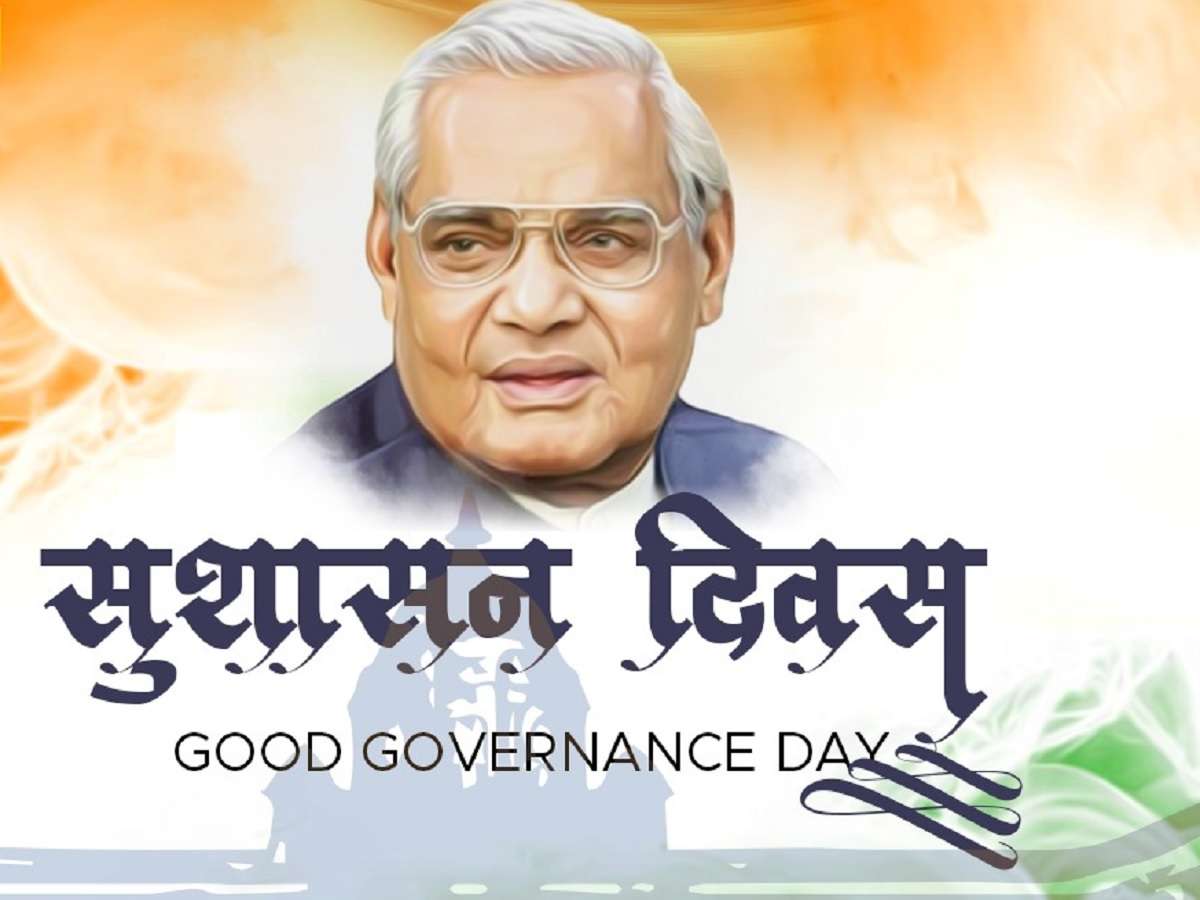
In 2024, India will observe Sushasan Diwas or Good Governance Day, which celebrates the birth anniversary of former Prime Minister Atal Bihari Vajpayee. This day aims to raise awareness about government accountability and administration while promoting good governance practices among Indian civil servants. As a poet-politician, Vajpayee's contributions during his tenure saw the implementation of initiatives like Kisan Credit Card, Pradhan Mantri Gram Sadak Yojana, and Sarva Shiksha Abhiyan. This year, the theme for the celebrations is "India's Path to a Viksit Bharat: Empowering Citizens through Good Governance and Digitalisation," highlighting the importance of active participation from both the public and government for a better India.
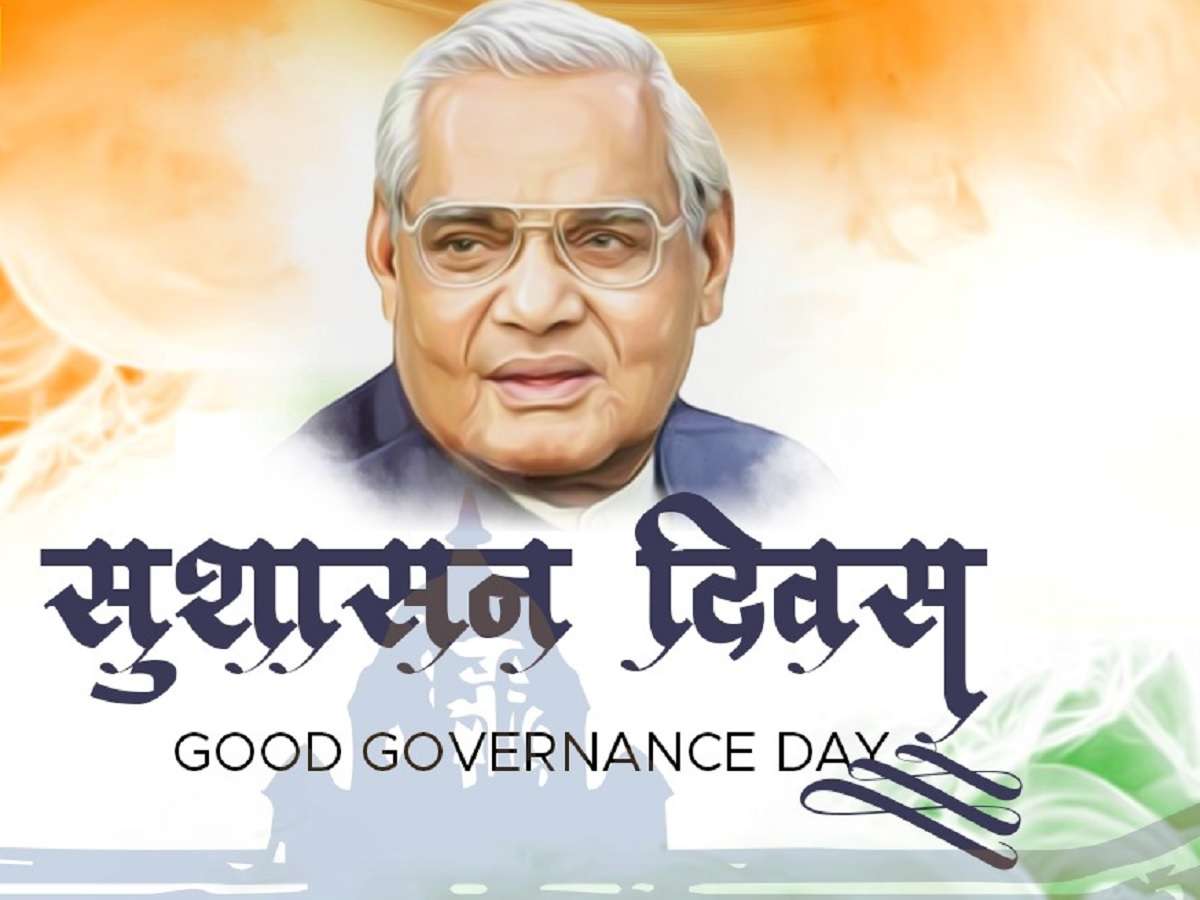
As India celebrates its 100th Good Governance Day on December 25, the country honors former Prime Minister Atal Bihari Vajpayee's contributions to responsible governance. With initiatives such as the Ken-Betwa River Linking Project and Atal Gram Sushasan Buildings, Vajpayee laid the foundation for transformational reforms in rural development. Prime Minister Narendra Modi's upcoming visit to Khajuraho on the occasion will unveil a series of development projects and initiatives in Vajpayee's honor.

On December 25, the birth anniversary of former Prime Minister Atal Bihari Vajpayee, the Indian government observes Good Governance Day as a way to honour his leadership and services to society. The day serves as a reminder of the responsibilities and roles of the government in providing equitable treatment and services to its citizens, bridging the gap between them and fostering active engagement. Since its establishment in 2014, Good Governance Day has been annually observed to promote transparent and effective governance in the country.

On his birth centenary, the legacy of former Prime Minister Atal Bihari Vajpayee continues to be a cornerstone of Indian politics. Known for his impeccable oratory skills and innate democratic spirit, Vajpayee was a key figure in the BJP's rise to power and the formation of a stable coalition government. Despite facing criticism from right wing organizations for not pushing their agendas, Vajpayee's firm leadership and good governance policies earned him respect and affection from across the political spectrum. From navigating national crises to implementing major infrastructure projects, Vajpayee left an indelible mark on Indian politics.